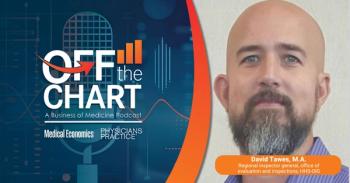
Three Common Tax Time Scams Targeting Medical Professionals
Given the heightened scrutiny of the medical industry on a variety of medical practice related issues from billing to HIPAA compliance, it should come as no surprise that the IRS is looking at medical practices and their accounting methods more carefully than ever before.
I’m a firm believer that asset protection is a science that requires coordination of legal, financial, insurance, and tax planning. As such I encourage my clients to take aggressive action to minimize their tax exposure but ask them to do so within the limits of the law and the tax code. As tax season bears down upon us, an inevitable onslaught of fraudulent or at least questionable tax plan marketing fills doctors’ mail and email boxes.
Given the heightened scrutiny of the medical industry on a variety of medical practice related issues from billing to HIPAA compliance, it should come as no surprise that the IRS is looking at medical practices and their accounting methods more carefully than ever before. Unfortunately, due to the tax sensitivity of many medical professionals, they are often an open-minded audience for tall tales and schemes that amount to criminal tax fraud.
Typically it is the plan promoter themselves that draws attention and the resulting investigation and audit of all their clients results in huge penalties. In one case, a client innocently bought such a plan from a slick promoter in reliance on an “opinion letter from a law firm” only to discover during the audit that the opinion letter was written to mislead the client and protect the law firm from being held to it. The client spent $50,000 on worthless tax and legal planning with the promise of six figures in savings. The resulting audit, taxes, fines, and penalties ended up costing over $300,000 when it was undone only a few years later.
While we can’t possibly identify all the fraudulent tax schemes targeting doctors in a concise way, here are three of the most common variations we see repeated on an annual basis and sold by promoters with disastrous results:
1. I don’t have to pay taxes because… a variety of “exemption” scams, often on the same websites that sell various expatriation services include terms like Non-Filer, Sovereign Citizen and Pure Trusts in various incarnations including Constitutional Trusts, and Patriot Trusts. What all of these have in common is a heavy reliance on political dogma over the actual U.S. tax code and will inevitably put you in the position of tax evasion. If you are told a plan is new, secret, or private, be very careful and get an independent, second look at your choice before you leap.
2. Huge 11th hour life insurance sales. There are a variety of plans that do actually use life insurance and the tax free growth, deductibility, and other benefits in a legal and efficient way (Section 79, defined benefit and defined contribution plans are common examples). The problems arise when last minute insurance sales are pushed through as tax plans without the reporting formality, recording keeping and when strict contribution and deduction limits are ignored. Make sure you are working with a seasoned pro that is using the power of life insurance the right way and who will often include a specialty Third Party Advisor or TPA to administer the plan.
3. Plans ignoring the “Rule of Three.” Many of the top tax advisors I work with around the country agree that the Rule of Three is a simple lay-person test and red flag for independent verification of the legality of any given tax plan. It’s amazingly simple; if you are promised that contributions are deductable, growth is tax free and distributions or withdrawals are tax free, tread very lightly. Many plans can offer two of the above three in some combination, but we rarely see all three together.
As you saw in my
Newsletter
Optimize your practice with the Physicians Practice newsletter, offering management pearls, leadership tips, and business strategies tailored for practice administrators and physicians of any specialty.








